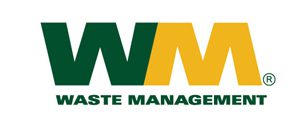 Miami-Dade County recently announced the “Waste Watch” program for Waste Management Inc.’s (WMI) drivers and “Waste-Watch-Like” program for county- employed drivers.
Miami-Dade County recently announced the “Waste Watch” program for Waste Management Inc.’s (WMI) drivers and “Waste-Watch-Like” program for county- employed drivers.
The programs will train waste collection drivers to report suspicious and criminal activities to law enforcement while out on the job. The official launch and demonstration took place on Nov. 30 at the Miami Science Museum.
This past May, the Miami-Dade County Commission adopted chair Joe A. Martinez’s resolution directing the Mayor’s Office to present a report detailing the best methodology and implementation schedule to create both programs.
The objective of WMl’s existing Waste Watch program is to enhance community safety by providing timely information to local police and emergency services. This program trains drivers of Waste Management’s vehicles within the locality to look for and report suspicious or criminal activity to authorities.
Martinez believed this model would be beneficial for the county’s own Department of Solid Waste Management (DSWM) and proposed a training program for DSWM truck drivers to follow this methodology to assist residents.
“The Waste Watch program will aid in the efforts to decrease crime in Miami- Dade County,” Martinez said. “Drivers from our Solid Waste Department are frequently out at times of the day when residents are at work and away from their homes, an opportune time for break-ins and other illegal activities. Having an extra set of eyes on the street will give residents peace of mind.”
The county’s DSWM will work with WMI and implement the Waste Watch program for WMl’s drivers within a four- to six-week period. A WMI team based in Atlanta, GA, would be brought in to coordinate with local law enforcement/ emergency response agencies and provide training for their waste truck drivers.
The driver training includes instruction on how to respond to various types of incidents, such as: crime in progress, unattended child, house fire and non-emergency situations that warrant investigation. Drivers are instructed not to place themselves in harm’s way, but are encouraged to report what they see and take reasonable actions to protect life and property.
Implementing the DSWM portion of the program will require development of an in-house training program partnered with WMI. Development of the DSWM program would require the support and cooperation of the waste union and may require changes to the collective bargaining agreement. The informal initial reaction of waste union representatives was very positive.
For more information, contact Martinez’s office at 305-375-5511.






